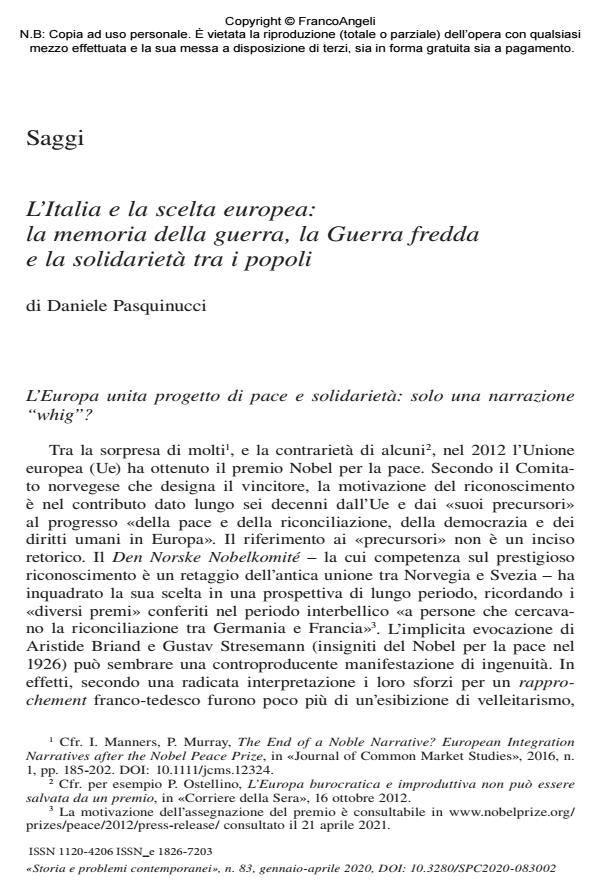Italy and the European integration: The remembrance of war, the Cold War and solidarity among Europeans
Journal title STORIA E PROBLEMI CONTEMPORANEI
Author/s Daniele Pasquinucci
Publishing Year 2021 Issue 2020/83
Language Italian Pages 19 P. 15-33 File size 133 KB
DOI 10.3280/SPC2020-083002
DOI is like a bar code for intellectual property: to have more infomation
click here
Below, you can see the article first page
If you want to buy this article in PDF format, you can do it, following the instructions to buy download credits

FrancoAngeli is member of Publishers International Linking Association, Inc (PILA), a not-for-profit association which run the CrossRef service enabling links to and from online scholarly content.
The memory of the world wars played a crucial role in pushing the Italian ruling class to join the first European Communities. The attempt of promoting "solidarity among peoples" was intimately linked to the goal of pacifying the continent. Thus, European unification as an antidote to war became an integral part of the pro-European narrative. Between 1946 and 1953, the international framework, marked by the emergence of East-West tensions, added to the memory of wars the risk of a conflict between the two blocs (particularly after the Korean War of June 1950, a watershed in the history of European integration). The remembrance of the war and the dreaded (new) war fostered an even more intense thematization of "(Western) European solidarity" as a resource for promoting the European integration process and, as we can be read in the Schuman declaration, making war in Europe "unthinkable".
Daniele Pasquinucci, L’Italia e la scelta europea: la memoria della guerra, la Guerra fredda e la solidarietà tra i popoli in "STORIA E PROBLEMI CONTEMPORANEI" 83/2020, pp 15-33, DOI: 10.3280/SPC2020-083002